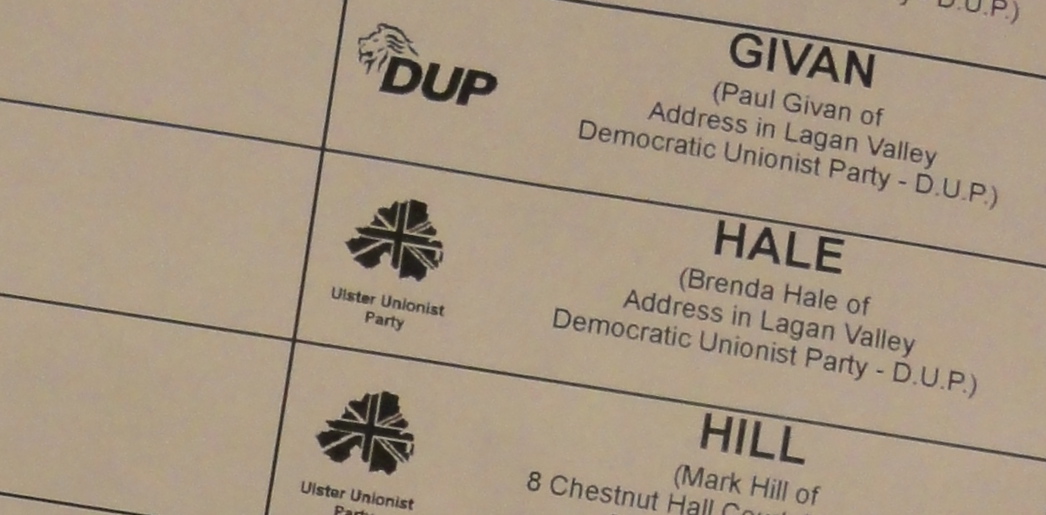A debate has broken out on social media about candidates and where they come on the ballot paper. Kate Nicholl writes for us explaining the problem and why it can matter on polling day
I always said if I ran for election again I’d change my surname to something beginning with an A or a B. Nicholl is such an unfortunate political surname, especially in Northern Ireland where it gets lost after all the M’s. Because it is a truth generally acknowledged that candidates who are first on the ballot tend to receive a vote advantage compared to those whose names begin with letters later in the alphabet.
Emma Little Pengelly (also known as Emma Pengelly), was in the Newsletter today. There has been speculation (mainly on twitter) that Emma Pengelly is prefixing her surname with “Little” to be above Ruth Patterson on the Ballot, something the DUP MLA says is untrue.
But even if she had simply revived her previous surname just to give her an alphabetical advantage in May’s election, I’m not sure I’d blame her because I think alphabetical ballots are seriously unfair.
During the 2014 European election some Chinese constituents who couldn’t read English wanted to know how to vote for Anna Lo – a volunteer thought the ballot would be alphabetised according to Party and told them Anna (being the Alliance Party candidate) would be the name at the very top. I’m going to go out on a limb here and guess that was the first time Jim Allister got so much support from the Chinese community…
But there’s a serious question: how much do alphabetical ballots skew democracy? And what do we do about it?
A 2012 Parliamentary Affairs article looked at local council elections in Britain and the electoral advantage gained from a candidate’s surname being higher up the ballot paper. For ‘low-information’ elections (where voters don’t know or care enough to consider all their options) especially candidates located at or near the top of the ballot paper are advantaged relative to their competitors.
Research which analysed the names of members of Congress from 1949 to 2012 and state legislators from 1967 to 2010, found that alphabetical ballot lists account for the results in 10 Congressional seats and more than 70 seats in state legislatures. The author argues that alphabetically ordered ballots undermine the principle of fair elections, and that reform of ballot order rules is needed.
Measures could be taken to remove the effects of alphabetic bias, like randomising name order or candidates could be grouped by party on the ballot paper. Another option could be rotating the order of candidates’ names on ballot papers, i.e. ballot papers are printed and collated so that consecutive ballot papers do not show candidate names in the same order. In Tasmania they use a system called ‘Robson Rotation’, where the number of versions of the ballot paper is equal to the number of candidates and each candidate’s name therefore appears an equal number of times at the top and bottom of the ballot paper.
Is it time we addressed the issue of alphabetised ballots? And if so, what method would be best to adopt? And finally, would it make much of a difference given our propensity for tribal voting?
In the meantime, if anyone has any ideas for catchy surnames (preferably beginning with “A”), I’m open to suggestions.
This is a guest slot to give a platform for new writers either as a one off, or a prelude to becoming part of the regular Slugger team.
Discover more from Slugger O'Toole
Subscribe to get the latest posts to your email.
